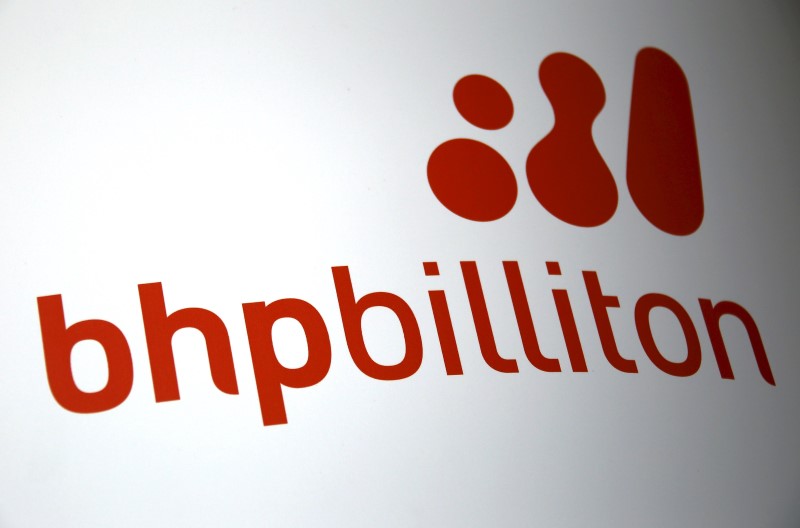(Repeats May 12 story with no changes to text)
* No rebuttal of Elliott likely - source
* U.S. shale sale idea gains traction - investors
* BHP sees petroleum arm as core
By Jamie Freed and Barbara Lewis
SYDNEY/LONDON, May 12 (Reuters) - BHP Billiton BHP.AX BLT.L Chief Executive Andrew Mackenzie, batting off an attack by activist funds, will tell investors in Barcelona next week that the top global miner can pump more for less out of its unloved shale assets.
But don't expect a fresh public response to the attack by hedge fund Elliott Management, which last month called for an overhaul of BHP's structure.
"You are not going to see a rebuttal to Elliott," said a source close to BHP, who was not authorised to speak publicly about the matter.
Mackenzie, among the executives due to address a Bank of America Merrill Lynch (NYSE:BAC) mining conference next week, will outline how BHP is increasing output and cutting shale drilling costs, gaining better acreage by trading assets, and extending its reach by partnering with other players, the source said.
Elliott is pushing a three-point plan to collapse BHP's dual-listed structure, spin off its U.S. oil and gas assets, and boost returns to shareholders - all of which BHP has rejected.
Sydney-based Tribeca Global Natural Resources Fund last week called for a board shake-up and a sale of the shale assets. idea that has gained the most traction among investors contacted by Reuters is that BHP should rethink its involvement in U.S. oil and gas.
The source close to BHP said the company is also conscious that the oil and gas argument has generated the most discussion.
However, investors differ over the timing of any sale and whether BHP should pursue a trade sale of the shale assets, a public listing of all of its U.S. assets, as Elliott has suggested, or even a total exit from petroleum.
BHP says oil and gas is core to its strategy, with good growth, strong margins and fewer market-share obstacles to acquisitions compared to its iron ore, copper and coal arms.
Outgoing BHP Chairman Jac Nasser said earlier this month that the petroleum business, including deepwater oil assets in the Gulf of Mexico, is the company's highest-margin business.
A BHP spokeswoman and a spokesman for Elliott declined to comment on the address or sideline meetings. It was unclear if Elliott would be travelling to Barcelona.
TEST TALK
"Oil as an asset has actually been good as part of the overall BHP portfolio," said Argo Investments portfolio manager Andy Forster, a top 20 investor in BHP's Australian arm.
"It's just unfortunate they went and bought the U.S. shale assets. Potentially over time they maybe should get out of the U.S. shale business, but I just don't think now's the time to do it."
BHP paid $20 billion for the U.S. shale assets, bought in 2011 and 2012, but the subsequent collapse in oil and gas prices forced it to write down the value by $12.8 billion.
The company last month said it had put its Fayetteville assets in Arkansas, bought for $4.75 billion but now valued at $919 million in its books, back on the block. is "not convinced that the piecemeal sale of little bits of assets is the best way forward," a source close to the activist fund said.
London-based Bernstein analyst Paul Gait said Mackenzie needed to prove that oil majors like ExxonMobil Corp XOM.N were not "missing a trick" in lacking mining divisions.
"If they are not, then BHP is mistaken in its ownership of oil assets and Elliott is right. Basically, either BHP is right on this or every major oil company apart from them is wrong."
<^^^^^^^^^^^^^^^^^^^^^^^^^^^^^^^^^^^^^^^^^^^^^^^^^^^^^^^^^^^ Diversified miner
http://tmsnrt.rs/2pEgChI
^^^^^^^^^^^^^^^^^^^^^^^^^^^^^^^^^^^^^^^^^^^^^^^^^^^^^^^^^^^>
